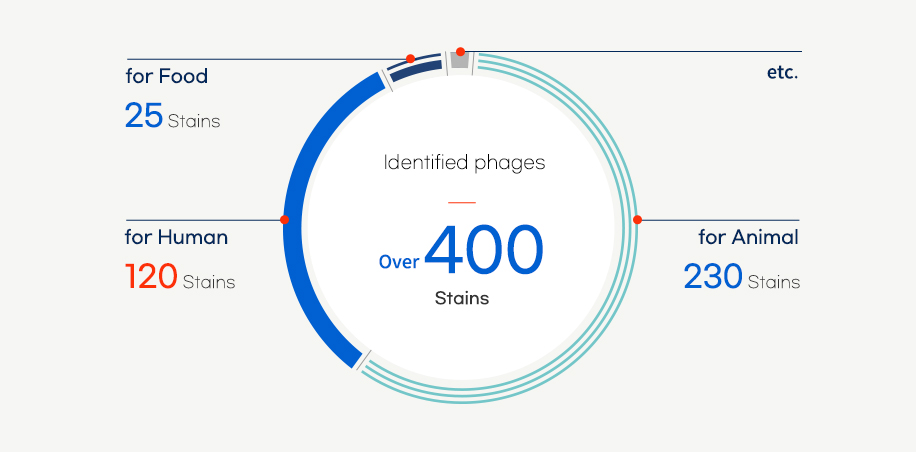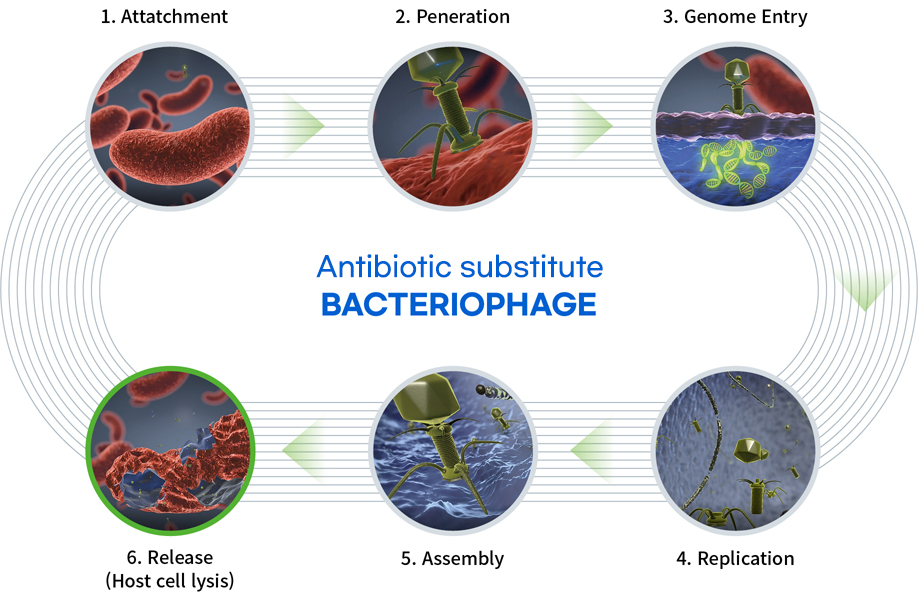Summary
About Bacteriophage
Bacteriophage refers to a virus whose host is bacteria, as its name comes from “Eating (Phage) Bacteria.”
Since bacteriophages only remove bacteria, they do not affect animal cells at all. After making contact with bacteria, they inject genetic material into the bacteria, multiplying, bursting and killing bacteria as they emerge. Because like other viruses it has host-specificity, it can remove only harmful bacteria, without affecting beneficial bacteria. Bacteriophages are ubiquitous in all environments, and we are continuously exposed to them as they exist in much greater numbers than bacteria. This means that we are safe with bacteriophages in our body.
Bacteriophages can safely and effectively eliminate pathogenic bacteria.

The type of phage
you have
- Medicine
- Veterinary Medicine
- Pet
- Health
Care - Food
Over 600 strains of bacteriophage

Patents: 42 Patents application
- Number of collected phage : over 3,000 strains
- Charaterized phages : over 1,000 strains
- Identified phages : 600 strains
The Mechanism of Bacteriophage
Bacteriophage
